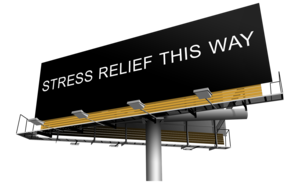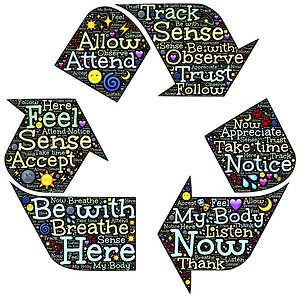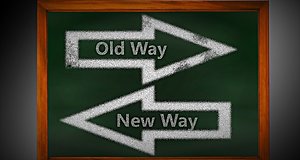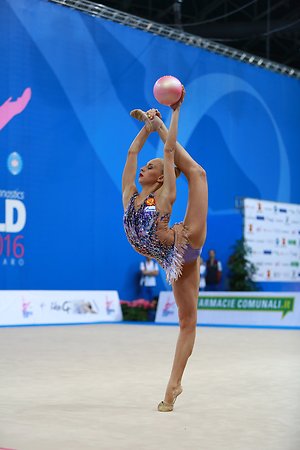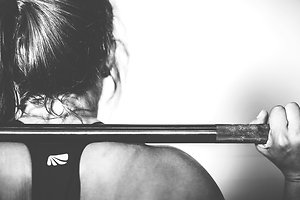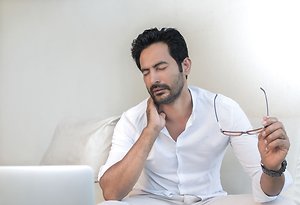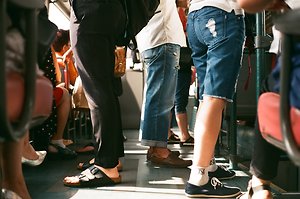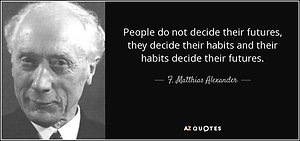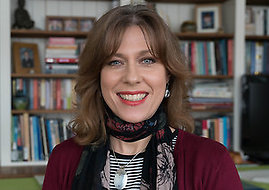Breath and Ease - Part 3 - Breathing and Emotional Wellbeing- February Blog 2020
The number of articles on this subject has exploded in recent years and many different modalities use breath as a way to improve mental wellbeing and create bodily ease. Scientific evidence has elucidated the body/mind feedback loop. We have a better understanding, biologically and neurologically of the reasons why many of the ancient practices such as medication, yoga and Tai Chi used breath focused activities to enhance wellbeing. These studies bring a clearer comprehension and appreciation of the body/mind connection and to why it helps to bring attention to the body and breath to improve mental ease.
B. Grace Bullock Ph.D. (a psychologist) wrote about this in a recent article in The Greater Good Magazine (published by the Greater Good Science Centre UC Berkley). She wrote ‘It helps regulate our nervous system’ and states that scientific studies show ‘paced breathing also uses neutral networks beyond the brain stem that are tied to emotion, attention and body awareness’. Therefore, breath work is a great way of regulating our response to stress.
When we breathe rapidly there is an increased activity in the amygdala (the area of the brain that is responsible for the perception of emotions) as well as other networks in the brain. Quick breathing rates trigger feelings like anxiety, fear and anger. It engages the sympathetic nervous system involved in the flight, fright and freeze response. On the other hand, it is possible to reduce the feelings of fear and anxiety by slowing down our breath and focusing on extending the out breath. This helps to preferentially engage the parasympathetic nervous system which helps us relax.
Learning to gently attend to our breath and body and its subtle movement (created by easy free breathing) has another positive effect on our mental wellbeing. As Susan Bauer writes in 'The Embodied Teen' ‘Recent studies have demonstrated that people with higher levels of body awareness exhibit greater resilience, as they tend to recognise physical signs of stress earlier on and take steps to alleviate it, rather than allowing it to build up to the point of strain and illness’.
Alexander Technique lessons build greater embodied awareness and teach practical tools to reduce excess muscle tension and give more ease and poise - allowing easy breathing (or vice-versa). Alexander Technique is an early warning system for stress and strain. We become more attuned to what our bodies are trying to tell us, instead of the first signs that something’s wrong being pain and injury. We learn to notice discomfort or even better realise when we can be better co-ordinated in body, mind and emotions. This helps improve wellbeing, it allows us to consciously choose how to respond to stimuli and situations around us with greater mental, emotional and physical ease.
By learning and practicing the Alexander Technique we are cultivating 3 ways of improving our mental wellbeing;
1. By noticing changes in our breath and body (eg. muscle tension) and understanding these changes in different situations we develop interoceptive awareness (the awareness of inner body sensations, involving the sensory process of receiving, accessing and appraising internal bodily signals) which helps us become more resilient.
2. By breathing easy and using our bodies with greater ease and poise we are learning to lower the general everyday activation of the sympathetic nervous system and feel less anxious and on edge.
3. Then when in tricky situations we have a greater sense of agency. We can stay embodied, feel physical more poised and choose to pause and focus on the pace of our breath and movement of our body. This engages the parasympathetic nervous system and helps us to relax.
For more information on the Alexander Technique and lessons click here. The best way to learn the Alexander Technique is by having lessons with a qualified teacher, to find an Alexander Technique teacher near you go to STAT (The Society of Teachers of the Alexander Technique) or www.alexander technique.com.
Breath and Ease - Part 2 -Breathing and Physical Wellbeing - January Blog 2020
Breathing well is important both for our physical and mental wellbeing, both are intertwined, as I mentioned in my last blog. We cannot separate mind and body, there is always an interplay, we work as a whole.
Saying that, I am going to try and focus more on the physical wellbeing side of breathing in this blog. Lets see how it goes!..
To read the rest of this blog click here
Breath and Ease - Part 1. December 2019
Breathing easy, such an integral part of the Alexander Technique self-care skills developed within lessons. It is a psychophysical (mind-body) process which, with a little awareness we can notice. Our thinking and emotions can change our breathing patterns and our breathing patterns can change the way we feel and think. It’s also mostly an unconscious process, however we can consciously choose to alter our breathing patterns. It’s fascinating that altering our breathing patterns can be a powerful way of enhancing our wellbeing. I like to be aware of the latest thinking in mind-body wellbeing and try to read widely about other disciplines. Breathing patterns are used to enhance wellbeing across many disciplines including meditation, yoga, CBT for anxiety and trauma therapy. AT offers a very holistic approach.
To read the rest of this blog click here.
More qualities, attitudes and thoughts that make change easier -Blog October 2019
People generally come to the Alexander Technique because they want to change or improve something. Posture, back pain, performance, anxiety or playing an instrument, there are many possibilities, as AT can be thought of as the ‘how to allow greater ease, poise and better co-ordination’ in anything relating to mind, body and emotions. In my experience to create the conditions for effective change, or to be open to learning new things we need to attend to our attitudes and thoughts around change, which can be habitual, unconscious and as ingrained as our physical habits of being and doing...
To read the rest of this blog click here.
Alexander Technique Week 2019 - 14-20 October 2019
War veteran speaks out to help others understand ‘Where’s your head at?’
Richard Marsden, a Falklands veteran who suffers from PTSD, has joined forces with the Society of Teachers of the Alexander Technique (STAT) to help people learn about the connection between mental and physical health.
Click here to read the rest of this article.
Hypermobility and the Alexander Technique -July 2019 Blog
What is hypermobility? It's when a joint can move beyond the ‘normal’ range of movement (ROM). When we were children, we may have known or been someone who was ‘double jointed’. Someone that could perform great ‘party pieces’, for example, demonstrate weird shaped elbows that seemed to bend the wrong way, be able to get their feet behind their head or push their thumbs down to touch the inside of their wrist. My husband is hypermobile, and until recently his party piece was dropping into the box splits!
To read the rest of this blog Click here.
Mastering the Art of Working out (or how to avoid injuries with mindful exercising) -June 2019 Blog
I was always mindful of using my best technique while training and exercising, even before I became a personal trainer or Alexander Technique Teacher. I am, however, competitive by nature, with myself and others and often pushed myself to the limit resulting in injury. I was in my early to mid twenty’s when I was training at my hardest, youth was on my side and the idea of sustainable training didn’t seem an issue at that point. I always seemed to bounce back.
To read the rest of the article click here
The Curse of the ‘Tension Triangle’ and How the Alexander Technique can help. May Blog 2019.
Do you carry the weight of the world on your shoulders? Are you shouldering heavy responsibilities? Are your shoulders tense and tight and wound up towards your ears? I am sure we all recognise these sensations and feelings! I know I have felt either dragged down or wound up at various times, and our shoulders are only part of the story. We might be stuck in the ‘tension triangle’ - a band of tension that falls within the top part or our bodies, involving the head, neck, shoulders, jaw and facial muscles, including the brow.
To read the rest of this blog Click here.
Reading Aloud with Confidence and the Alexander Technique - April 2019
Last month I had the pleasure of taking a workshop for the wonderful charity ‘First Story’. Their mission is to change lives through writing. As it says on their website they ‘believe that writing can transform lives, and that there is dignity and power in every young person’s story. First Story brings talented, professional writers into secondary schools serving low-income communities to work with teachers and students to foster creativity and communication skills. By helping students find their voices through intensive, fun programmes, First Story raises aspirations and gives students the skills and confidence to achieve them’.
To read the rest of this Blog click here.
How the Alexander Technique helped me with my disastrous day commuting! March 2019
Every other Wednesday I go to Educare Small School, Kingston-upon-Thames. I love it, as I have probably mentioned before! It's a wonderful place and teaching AT to 3-11 year olds is one of my favourite things to do. It's just under a two hour commute, but worth every second of travelling. I have worked there for over 6 years and usually the commute is fine. I mentally break it down into sections and its a great opportunity to catch up on some reading. But last month I had a challenging commuter day, both ends of the day the journeys went not as planned and I ended up travelling for more time than I spent at Educare. It was tiring, there was not denying that, but I think my AT skills really saved me from being completely frazzled. I felt able to go straight from my 3 hour adventure to Kingston into teaching, without the need for a strong cup of camomile tea!
To read the rest of this blog click here
Alexander Technique- Tension and Release, but what about Relaxation? February 2019.
Alexander Technique teaches us how to release excess tension so that we can be more balanced, coordinated and poised. But is it a relaxation technique? Well that’s not an easy yes or no answer. It depends what you mean by relaxation and even then it depends what your goals are in the moment (not forgetting the difference between goals and end-gaining, we can have a goal and allow for the process of reaching it to be mindful, whereas end-gaining in contrast is mindless)....
To read the rest of this blog click here
Alexander Technique and teaching young children -December 2018
I have always loved teaching young children. Before I qualified as an Alexander Teacher I worked as an education volunteer for the National Trust and as a Teaching Assistant in primary school. I love their energy, it’s so much fun, very creative and I get to be a bit silly!
To read the rest of this blog click here.
Alexander Technique in Sport and Fitness - November 2018
The society of Teachers of the Alexander Technique has just produced a short promotional film about Alexander Technique in Sport and it made me think about my experiences.
To read the rest of this blog click here.
‘Try Hard’ Mindset or is that mind/body set? October 2018.
We are often told from a young age that we need to try hard and you’ll make it - or, you need to try harder - put some effort in to achieve what you want. Whether that’s being better at spelling, competing at sport, playing an instrument or later in life in our careers. But, is it really good for our mind/body wellbeing to be doing all this trying hard, striving, struggling?
To read the rest of this blog click here.
Habits - the good, the bad and the ugly! September 2018
“People do not decide their futures, they decide their habits and their habits decide their futures.” F M Alexander
“Chains of habits are too light to be felt until they are too heavy too be broken.” Warren Buffett (American Business man, investor, speaker and philanthropist.) (I disagree with the second part of this quote, but thats how it often feels!)
To read the rest of this blog click here
Alexander Technique helps improve your posture, does that matter? - 5th July 2018
Alexander Technique teachers often have a problem with the word posture! It might have something to do with the fact that often, when we are talking to someone and they find out what we teach, they straighten up and pull themselves into a military style posture all tight and uncomfortable. They have heard that we are something to do with teaching ‘good posture’ and we, the posture police, are ready to judge them for slouching!
To read the rest of this blog click here
Prehabilitation and Rehabilitation and the Alexander Technique - 7th June 2018
Alexander Technique is becoming contagious in my family! Firstly my mother raised my interest in Alexander Technique after having lessons and this was the reason I gave it a go, now it’s my Dad’s turn. He has seen the changes Mum and I have made over the years, observed the benefits we have experienced (some of which are explained in my May blog listed below), but never quite understood what AT was. Dad thought it was a bit like physiotherapy and although he listened when I explained, somewhere along the way the full nature of the beast never really made a connection. Not feeling the needed to convert everyone I knew into AT lovers I left it that!
To read the rest of this blog click here.
Sciatica, a pain in the butt…and one of the reasons I came to the Alexander Technique - 9th May 2018
Sciatica can be a real pain in the butt, and down the leg or legs, and into the feet, its awful, I know from experience. In my late 20’s I was a personal fitness trainer. I had always been sporty a competitive swimmer, part of the school teams for athletics, netball and basketball, I trained with weights, was strong and flexible. Ever since my teens, however, I had also suffered with reoccurring bouts of lower back pain. Not too frequently, but when it arrived it was very uncomfortable, I took anti-inflammatories and had physiotherapy and it then seemed to subside again until the next time!
To read the rest of this blog click here.
Learn to Destress and Unwind with the Alexander Technique - 7th April 2018
We have probably all been slightly stressed from time to time. We can put ourselves under pressure or feel pressurised by external situations; jobs, household stuff, exam pressure or illness, to name just a few possibilities. This low to moderate level stress can leave us feeling tired, tight (especially our neck, shoulders and back), not quite our usual selves and reduces our emotional resilience. We may have even experienced deeper episodes of stress or a feeling of anxiety in particular situations. This is all normal and part of the human condition. (I have experienced both stress and anxiety at different times, in my mid twenties I had a period where I suffered with panic attacks and later in my early thirties the lose of someone close to me had a deeper impact.) Our bodies are well designed to cope with short periods of stress or anxiety, but problems tend to occur if we get stuck in a habitually stressed and anxious state. Something we often don’t recognise, it creeps up on us!
To read the rest of the blog Click here
Monkeying Around in the Garden - 2nd March 2018
Gardening is one of my favourite hobbies. I love being creative, seeing my garden change throughout the year, being physical and getting some time to myself in peace. From an Alexander Technique point of view, it’s also a great way of being mindful in activity, and think about my habits and pausing to think how to look after myself as I’m pottering around digging, pruning, racking and picking out the weeds!
To read the rest of this blog click here
Excited or Nervous? Maybe both - How the Alexander Technique helped me with an interview! - 29th January 2018
Last week I was given a very exciting opportunity, Robert Rickover, an American Alexander Technique teacher, invited me to take part in two interviews for his Alexander Technique podcasts called 'Body Learning'. I subscribe to these podcasts and there are some great interviews about all different aspects of the technique and how, where and with whom, it is taught. He invited me to talk about my work with the children at Educare Small School (3-11 years old), in Kingston and about my thoughts on teaching children AT in general.
To read the rest of this blog Click here
The Wisdom of Pausing - 5th January 2018
Pausing is the second key that unlocks the door to change. (The first being awareness of habit, as mentioned in my first blog).
The Alexander Technique offers many unique skills and principles that enable change, but the concept of pausing in order to respond rather than react to a stimulus seems to be a universal wisdom.
To read the rest of this blog click here
3 Important Qualities that Allow Change - 7th December 2017
(or how to get the most from your lessons)
To read the rest of this blog click here
A Short Introduction to the Work I am Part of at Educare Small School, Kingston.
